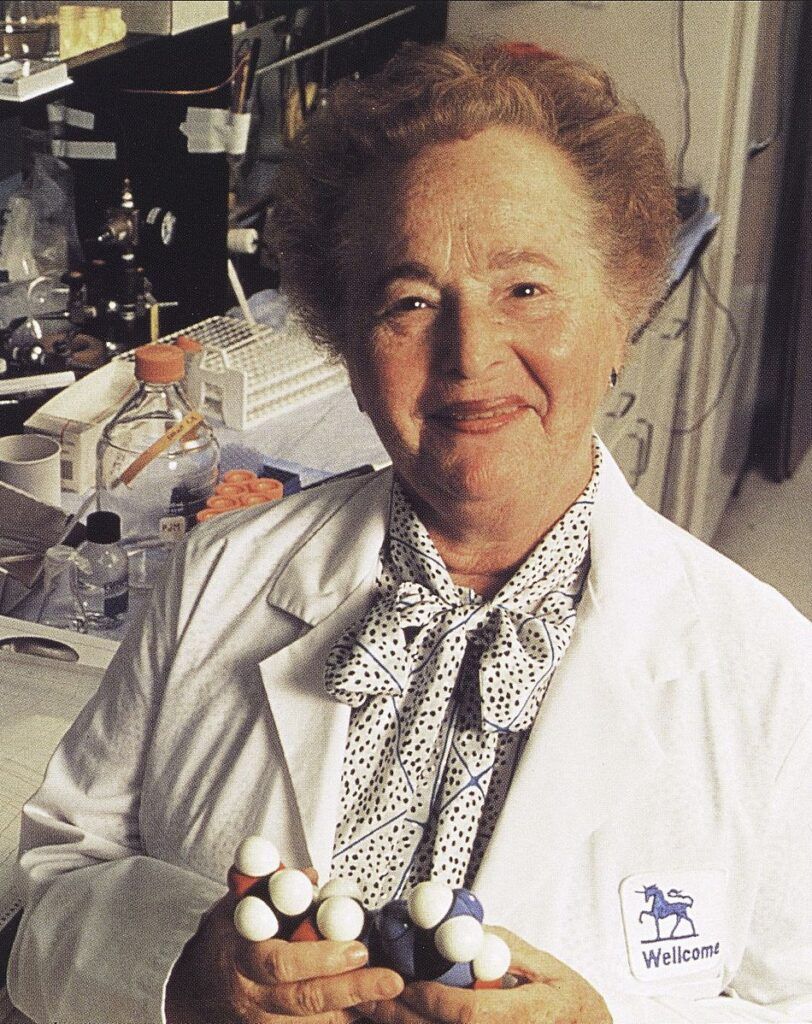Gertrude Belle Elion (1918-1999) revolutionized the process of developing new medications. While other researchers used a trial and error approach, Elion pioneered a more scientific method, analyzing the chemical composition of cells. Elion and her team worked tirelessly to detect differences between healthy human cells and diseased cells. In all, Gertrude’s team patented 45 drugs for illnesses such as AIDS, leukemia, and herpes. She also created a drug to prevent the body from rejecting transplants. Elion’s impact reaches far beyond the specific drugs she invented. Her greatest legacy is her game-changing method of pharmaceutical research which opened the door to countless treatments over the last half century. In 1988 Elion won the Nobel Prize for her groundbreaking scientific techniques.
Elion’s passion for biochemistry was inspired by the death of her grandfather, who passed away from stomach cancer when she was 15 years old. Growing up in the Bronx, Gertrude was very close with her grandfather. “I was highly motivated to do something that might eventually lead to a cure for this terrible disease”, Gertrude remarked years later. When Elion’s family went bankrupt in the stock market crash of 1929, her dream of attending college was put in jeopardy. Fortunately, her high grades earned her a spot at nearby Hunter College, which was free to all students who were accepted. afford to pay for graduate school. After completing her chemistry degree, Elion couldn’t afford to pay for graduate school. In 1944 she was hired by a pharmaceutical company that would later become GSK. It was at this laboratory that Getrude Elion would make history. Her visionary work led to the first antiviral drugs and launched a new era of medical discovery.

